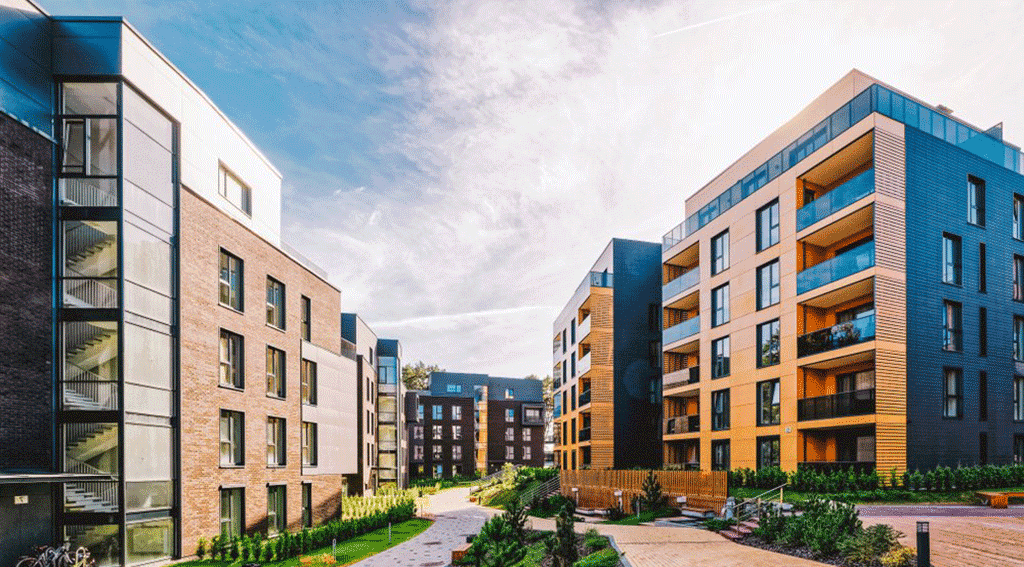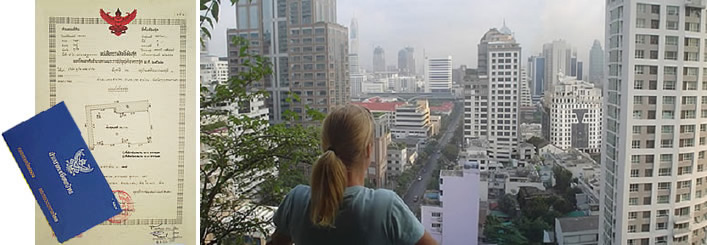.png)
Thailand has become a popular destination for property investment in recent years, and buying a condominium is one of the most common options for foreigners looking to own a piece of real estate in the country. However, purchasing a condo in Thailand can be a complex process that involves many legal and financial considerations.
To ensure a smooth and successful transaction, it is important to have a comprehensive understanding of the local laws and regulations, as well as the factors that can affect the value and desirability of the property. In this article, we will provide you with the ultimate guide to buying a condominium in Thailand, including important tips and considerations to help you make an informed decision and avoid potential pitfalls.
In this comprehensive guide, we'll take a deep dive into everything you need to know about buying a condominium in Thailand.

There are several reasons why buying a condominium in Thailand can be an excellent investment. First and foremost, Thailand is a beautiful country with a warm climate, friendly locals, and a low cost of living. For retirees, expats, or anyone looking for a holiday home, owning a condominium in Thailand can be a dream come true.
Additionally, many foreign investors are attracted to the affordable prices of condos in Thailand, particularly in popular tourist areas like Bangkok, Pattaya, and Phuket. Condominiums offer an affordable alternative to buying a house, and many developments come with amenities like swimming pools, fitness centers, and 24-hour security.
But perhaps the most significant advantage of buying a condominium in Thailand is the potential for rental income. With the booming tourism industry in Thailand, there is always a high demand for short-term rentals, and many condo owners are able to earn a substantial income by renting out their properties to vacationers.

Before you can buy a condominium in Thailand, there are several legal requirements that you must meet. First and foremost, as a foreigner, you are only allowed to own 49% of the total area of a condominium project. This means that if the total area of the project is 100 units, foreigners can only own up to 49 units.
Additionally, you must obtain permission from the Thailand Board of Investment (BOI) if you plan to purchase a condominium as an investment. The BOI requires a minimum investment of 10 million baht (approximately $318,000 USD) in order to qualify for permission to purchase.
It's also important to note that as a foreigner, you are required to transfer funds from overseas in order to purchase a condominium in Thailand. This is to ensure that the money is not derived from illegal activities, and that the Thai government is aware of the foreign investment.
Once you've navigated the legal requirements for purchasing a condominium in Thailand, it's time to start your search. There are countless condominium developments to choose from, so it's important to do your research and choose a property that meets your specific needs and preferences.
Location is perhaps the most important factor to consider when choosing a condominium in Thailand. Do you want to be close to the beach, in the heart of the city, or in a quiet suburban area? Consider your lifestyle and what type of location would suit you best.
Another important consideration is the amenities that come with the condominium. Many developments offer swimming pools, fitness centers, and other facilities that can make your life more comfortable and convenient. However, keep in mind that properties with more amenities may come with a higher price tag.
Finally, it's important to choose a reputable developer with a track record of delivering high-quality properties. Do your research and read reviews from other buyers before making a decision.

If you don't have the full amount of cash to purchase a condominium in Thailand, you may need to consider financing options. While it can be challenging for foreigners to obtain a mortgage in Thailand, there are some banks and financial institutions that offer loans to foreign buyers.
There are several financing options available to foreigners looking to buy a condominium in Thailand. Some developers offer financing packages with flexible payment plans and low-interest rates. However, it's essential to compare the terms and conditions of different financing options and ensure that they align with your investment goals and budget.

When buying a condominium in Thailand, it's essential to consider the tax and legal implications. Foreigners are subject to different tax rates and regulations than Thai citizens, and it's crucial to understand the tax implications of buying and owning a condominium in Thailand. It's also essential to ensure that all legal requirements, such as obtaining a residence permit or work permit, are met.

Conducting due diligence is crucial when buying a condominium in Thailand. This involves researching the property's title deed, ownership, and any existing encumbrances or liens. It's also essential to check the developer's track record and reputation, as well as the quality of construction and materials used. Hire a lawyer to assist you with the due diligence process and ensure that all legal requirements are met.

Working with a reputable real estate agent is critical when buying a condominium in Thailand. A good agent will help you navigate the process, provide you with valuable insights about the property market, and negotiate the best deal on your behalf. They will also ensure that all legal requirements and due diligence are met, and that the property is free from any encumbrances. Look for agents who have extensive experience in the Thai property market, a good track record, and excellent communication skills.

Before you start your condominium search in Thailand, it's essential to understand the current state of the property market. According to research, the Bangkok property market has been stable and resilient during the COVID-19 pandemic, with prices remaining steady and sales volume increasing. However, prices and demand for properties in other regions of Thailand can vary significantly depending on the location, accessibility, and market trends. Therefore, it's crucial to do your research and analyze market trends before making any investment decisions.

Condominiums provide different amenities to attract buyers. Evaluate the facilities provided, such as a swimming pool, gym, parking, security, and reception. Make sure these amenities meet your expectations before making a purchase. It is important to note that the higher the number of amenities, the higher the maintenance fees.
Investing in a condominium is a significant investment; it is vital to make an informed purchase. Using this guide, you can assess factors like location, amenities, size, financing options and set a budget to assist in making an informed choice. Remember, take your time, conduct research and ensure that you make the best purchase for you.